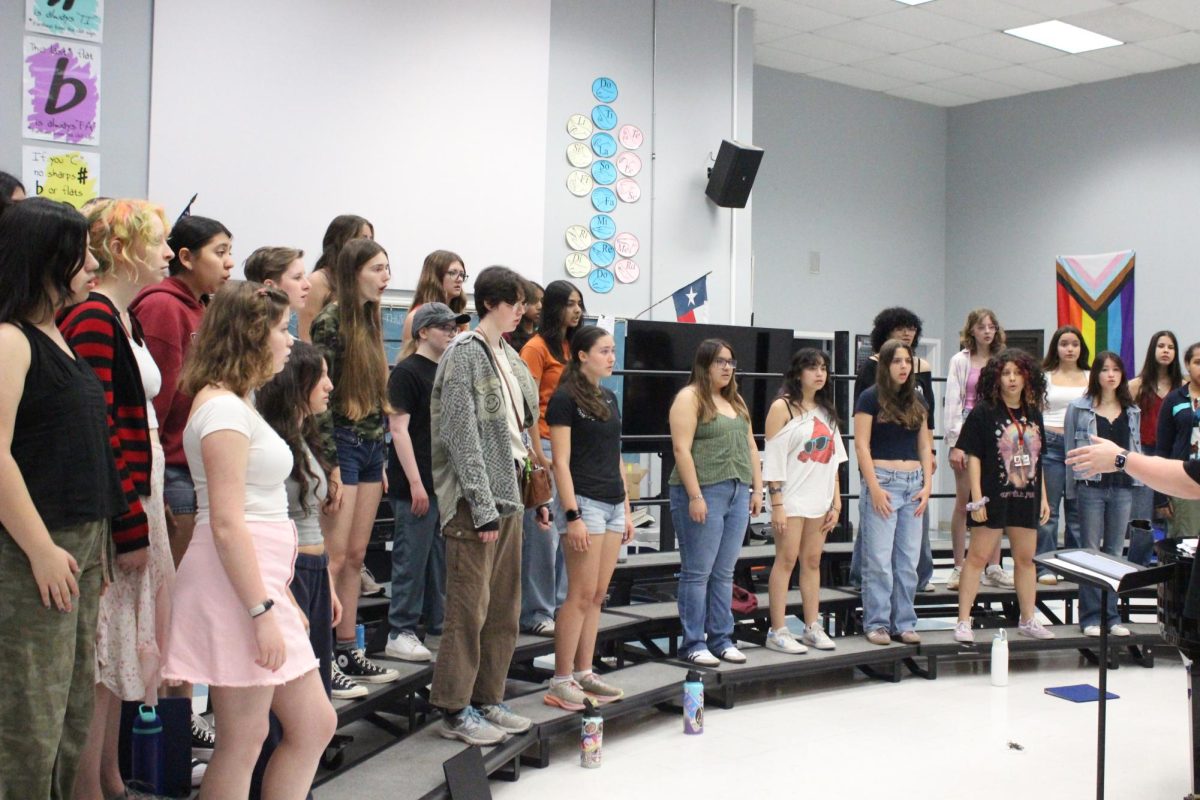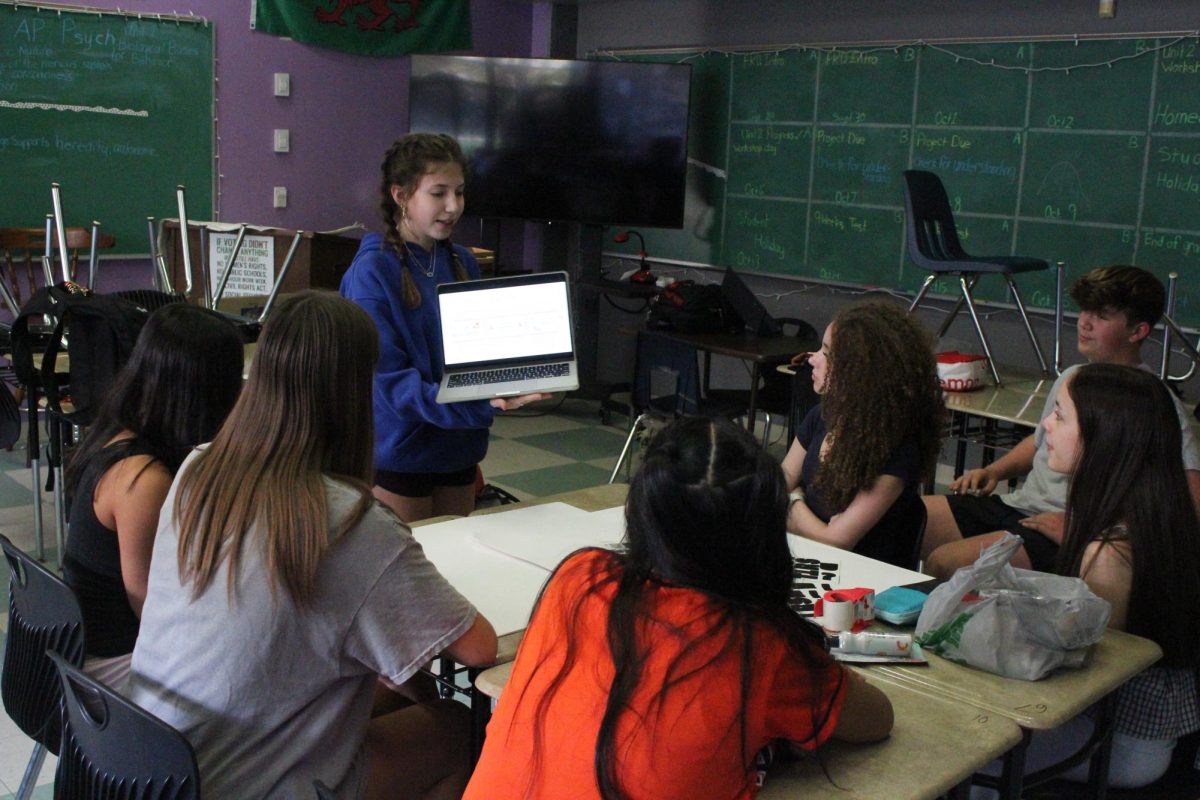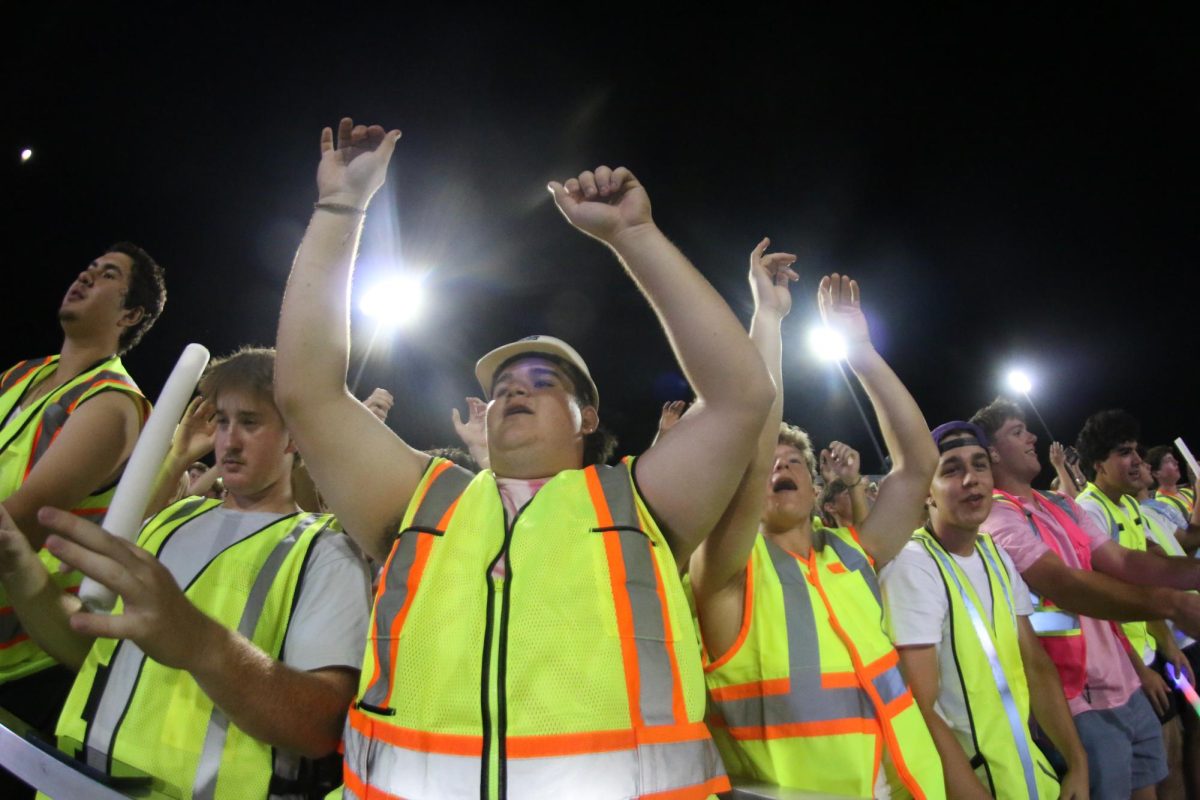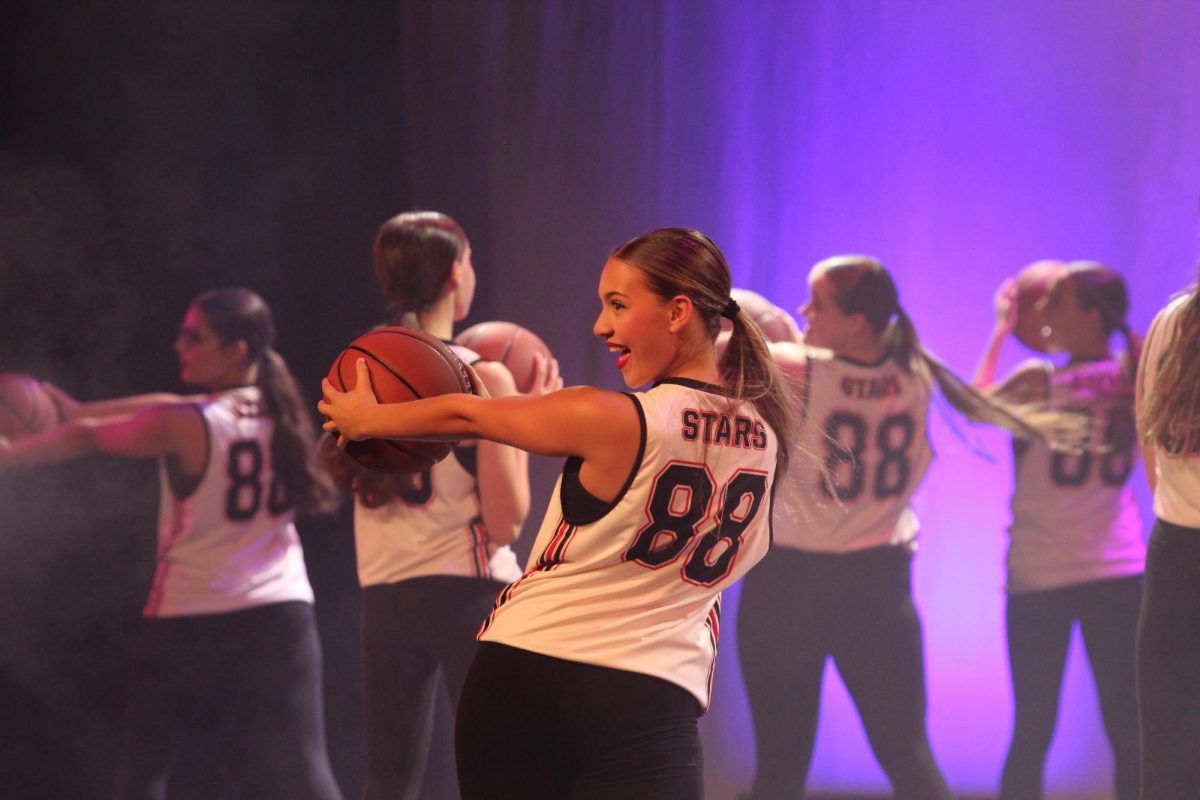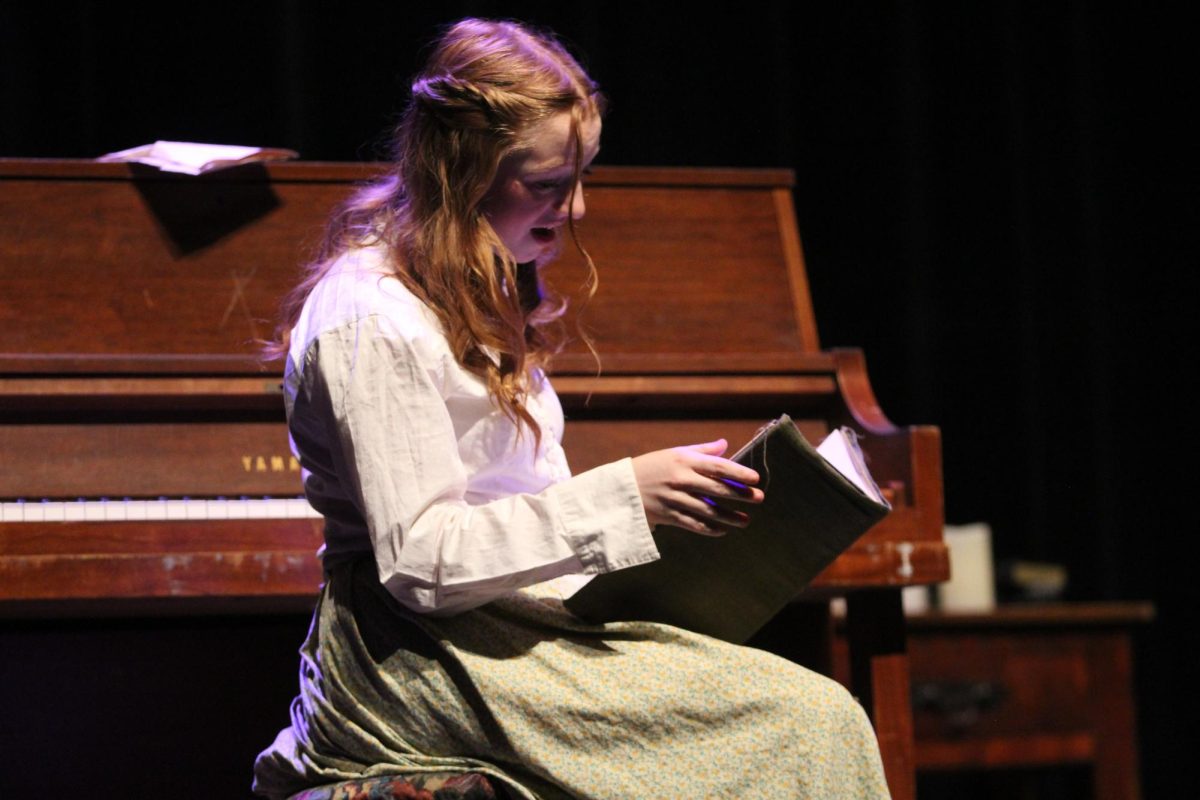Melodious notes drift from the choir room as students work and prepare for the final choir competition of the year. While each finalist practices their own piece in their own unique voice, love for choir drives them to do well.
In early February, 14 of Bowie’s choir students met the regional judges’ qualifications and advanced to state for solo and ensemble. There, they will sing once more in front of judges for the highest score possible, a score of one. The state solos will take place on Memorial Day weekend, giving the vocalists four months to prepare their piece.
“We do a group UIL contest, but that is all of us together,” choir director Aaron Bourgeois said. “Solo and ensemble is a lot more individualized.”
The pieces, which students originally compete within the regional competition, must be chosen from UIL’s long list of specially picked music. choose from.
“It’s good to have that song picked out and settled on right after Thanksgiving,” Bourgeois said. “Then they have the winter break to look over it because regionals are right on that first week of February.”
Since the pieces are selected during the fall semester, many of the vocalists end up keeping the same piece for state. However, for a variety of reasons, a vocalist’s piece could change.
“Sometimes judges urge you to choose a different piece. Sometimes kids don’t end up liking the piece that they learned for the first round, or the voice teacher decides to change it,” Bourgeois said. “For the most part, kids tend to repeat the same piece because they already learned it once, and they chose it for a reason.”
For as many reasons as there are to change their piece before state, there are just as many for competitors to keep it the same. Sophomore Faye Daughtry is one of the singers who advanced to state and will sing the same song she competed with in regionals.
“The song itself is really important to me and my voice teacher, it’s a sentimental song to her,” Daughtry said. “I really want to make sure I go in and I sing it with the same amount of dedication and passion that I did in the first round.”
The student’s performance of their pieces are graded on scales of one to three, one being the highest and three being the lowest. These scores are dependent on how challenging the song is, and how well they sing the music. To advance to state, competitors must receive a score of one. The type of song students perform can vary from octave range to genre to language. This year, sophomore Gabrielle O’Halloran will compete with an Italian piece.
“The piece is, musically, very interesting,” O’Halloran said. “There’s a lot of different parts, vocal jumps, that really challenge whoever’s performing it.”
On top of being reliant on the judge’s scores to move on, students must continue to practice and make sure their piece is the best it can be before state takes place. Many students must learn to balance extensive practice hours with their many different extracurriculars. Junior Louis Olmeda has had to juggle the spring baseball season with preparing for state.
“Spring is probably the busiest, since baseball season’s in the spring, and the busiest time for choir is spring,” Olmeda said. “So, getting to spring is always a challenge.”
Even with other obligations, the state qualifiers still find ways to practice and prepare for the competition, until they find themselves ready. For some students, the piece itself can play a major role in their motivation to practice.
“It wasn’t as difficult as the song that I did last year, but that’s only because I really like the song,” junior Quint Cheshire said. “The song last year was one that I wasn’t as enthusiastic about. This one really just struck a chord, so I just kept on listening to it.”
O’Halloran suggests that there are factors, on top of extensive practicing and balancing extracurriculars, that play major roles in students’ performances. She notes that uncontrollable things, like a dry throat or nervousness, may have an impact, despite how hard students practice.
“This is the first time I’m going to be going to state, so I want to do well,” O’Halloran said. “There’s always this barrier between what you want and what actually happens.”
While state for solo and ensemble is just one of the year’s choir competitions, some of the students that attend find it to be very helpful to them as vocalists. It gives them the chance to experience a competition on their own, and what it’s like, as well as the knowledge to continue to grow, both as singers and students.
“You don’t get to do very much solo singing in choir,” Daughtry said. “You’re usually working with a group and you’re working on a unified sound. Doing a solo, or even an ensemble with fewer people, you get to focus more on your own individual voice. It’s a good motivator to improve.”



